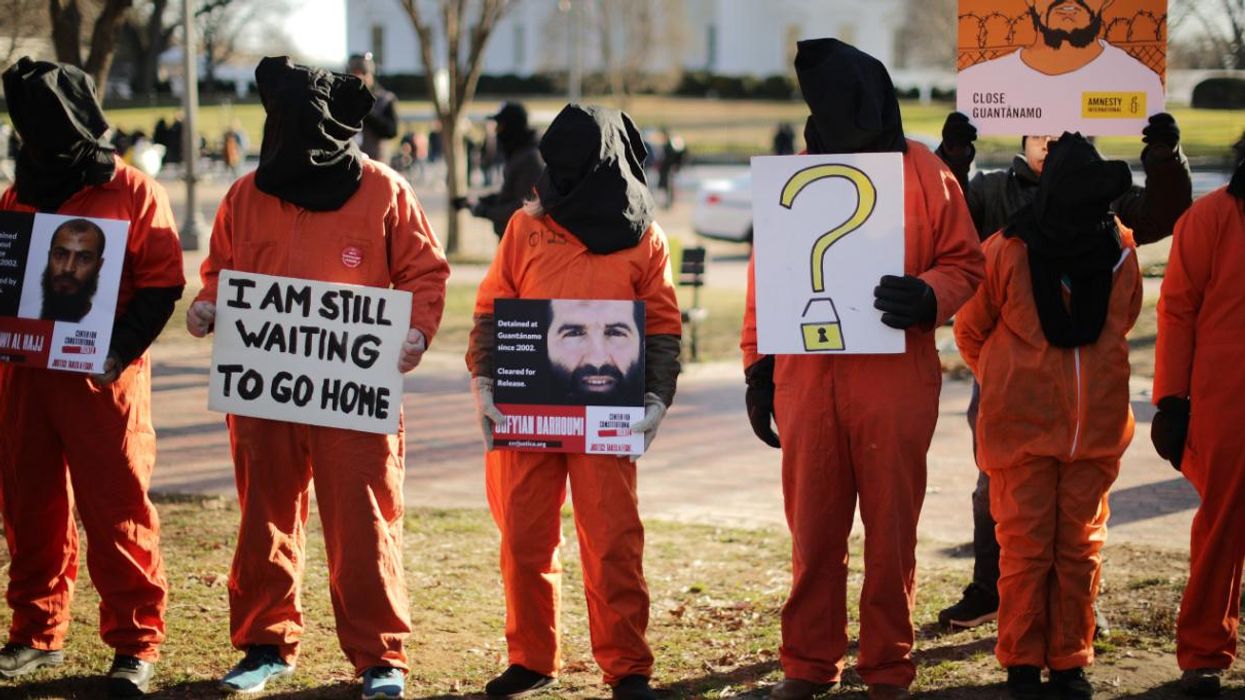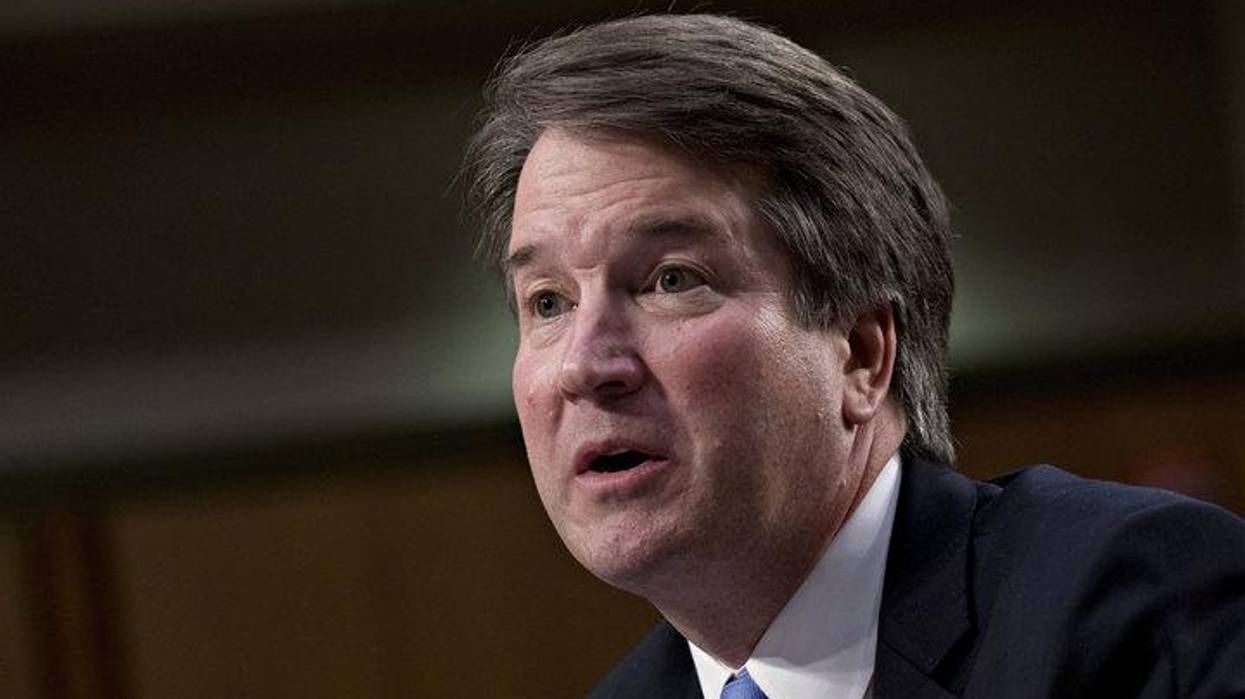After 23 Years, It’s Time to End the War on Terror for Good
Isn’t it time to free the country up to focus on truly pressing national concerns instead of letting the aberrations of the past continue to haunt the present moment?
September marked the 23rd anniversary of al Qaeda’s 2001 attacks on the United States, which left nearly 3,000 people dead. For the two decades since then, I’ve been writing, often for TomDispatch, about the ways the American response to 9/11, which quickly came to be known as the Global War on Terror, or GWOT, changed this country. As I’ve explored in several books, in the name of that war, we transformed our institutions, privileged secrecy over transparency and accountability, side-stepped and even violated longstanding laws and constitutional principles, and basically tossed aside many of the norms that had guided us as a nation for two centuries-plus, opening the way for a country now in Trumpian-style difficulty at home.
Even today, more than two decades later, the question remains: Will the war on terror ever end?
Certainly, one might be inclined to answer in the affirmative following the recent unexpected endorsement of presidential candidate Kamala Harris by two leading members of the George W. Bush administration which, in response to those attacks, launched the GWOT. First, Bush’s vice president, Dick Cheney, who, after September 11, sought to take the country down the path to what he called “the dark side” and was a chief instigator of the misguided and fraudulently justified invasion of Iraq in 2003, endorsed Vice President Harris. Then, so did Alberto Gonzales who, while serving as White House counsel to George W. Bush and then as his attorney general, was intricately involved in crafting that administration’s grim torture policy. (You remember, of course, those “enhanced interrogation techniques.”) He was similarly involved in creating the overreaching surveillance policy designed and implemented during the first years of the war on terror.
Consider those surprising endorsements by former Bush war hawks a possible coda for the war on terror as a major factor in American politics. In fact, for almost a decade and a half now, there have been signs suggesting that the denouement of that war might be at hand (though it never quite was). Those markers included the May 2011 lethal raid on the hideout of al Qaeda leader Osama bin Laden; President Barack Obama’s December 2011 authorization for the “final” withdrawal of American troops from Iraq (though a cadre of 2,500 military personnel are stationed there presently and another 900 are in neighboring Syria). In August 2021, 10 years after the killing of bin Laden, the U.S. did finally exit, however disastrously, from its lost war in Afghanistan. And in 2022, a U.S. drone strike killed bin Laden’s successor, Ayman al-Zawahiri.
The counterterrorism measures have had an impact on the American threat environment. As reported in the Department of Homeland Security’s 2024 Homeland Threat Assessment, in 2022, “Only one attack in the United States was conducted by an individual inspired by a foreign terrorist organization” such as al Qaeda or ISIS.
Terrorism Prosecutions
Notably, prosecutions of alleged international terrorists have declined precipitously since the Bush administration years (and some of the convictions then have been reversed or altered). In a 2009 report, the Justice Department stated that, “since September 11, 2001, the Department has charged 512 individuals with terrorism or terrorism-related crimes and convicted or obtained guilty pleas in 319 terrorism-related and anti-terrorism cases.” Soon after that, however, the decline began. TRAC, a database that monitors such cases, reported that, in October 2014, “[t]here were no prosecutions recorded that involved international terrorism.” By 2022, TRAC was reporting that the number of domestic terrorism prosecutions far outnumbered international terrorism cases, due in large part to the charges leveled against those involved in the January 6th insurrection. And that trend has only continued. This year, as TRAC indicated, “Overall, the data show that convictions of this type are down 28.6 percent from levels reported in 2019.”
And when it comes to terrorism prosecutions, something unthinkable not so long ago has now happened. Several judges have recently given early release or simply overturned cases involving individuals convicted and sentenced in jihadi-inspired terrorism cases during the first decade of the war on terror. In July 2024, Eastern District of Virginia Judge Leonie Brinkema threw out 3 of 10 charges against and overturned a conviction carrying a life sentence for Ali Al-Timimi, a U.S.-born computational biology scholar sentenced in 2004 for soliciting treason by inspiring his followers to commit acts of violence abroad to defend Islam. Judge Brinkema reversed her decision following a 2019 U.S. Supreme Court decision that found the term “crime of violence” to be “unconstitutionally vague.” Al-Timimi’s fate on the other counts is now on appeal. Having been released to home confinement after the onset of the Covid-19 pandemic, he now no longer faces a life sentence, though, as The Associated Press reports, he could potentially see “decades of prison time beyond the 15 years he already served.”
Nor was this Brinkema’s first reversal in a terrorism case. In 2018, she ordered the release of two prisoners convicted in what was known as the Virginia “Paintball Jihad” case following two Supreme Court rulings that held the charges in those cases to be similarly unconstitutionally vague.
If only in acting to restore a balance between punishment and the law, even when it comes to post-9/11 terrorism cases, Judges MacMahon and Brinkema had set an example for others.
And Judge Brinkema was not alone in reviewing and reversing post-9/11 terrorism convictions. This year, in two controversial cases, judges reassessed rulings they had once made, releasing from prison those they had sentenced in the war on terror years. Judge Colleen MacMahon granted “compassionate release” to James Cromitie, after six months earlier ordering the release of his three codefendants, commonly referred to collectively as the “Newburgh Four.” At sentencing, MacMahon had indicated her disagreement with the initial outcome of the case which led to 25-year sentences for the defendants convicted on charges that involved plotting to bomb synagogues and shoot down American planes with stinger missiles, describing their crime as that of “allegedly planting ‘bombs’ that were packed with inert explosives supplied by the FBI.” She further chastised the FBI in her compassionate release ruling, claiming, “Nothing about the crimes of conviction was of defendants’ own making. The FBI invented the conspiracy, identified the targets, manufactured the ordnance, federalized what would otherwise have been a state crime…, and picked the day for the ‘mission.’”
Four years earlier, in late 2019, a federal judge in Lodi, California overturned the conviction of Hamid Hayat, convicted in 2006 for attending a terrorist training camp in Pakistan and plotting an attack on this country, on the grounds that his counsel had ineffectively assisted him. Following that vacated conviction, the National Security Division at the Department of Justice reviewed the case and decided against filing new charges concluding “that the passage of time and the interests of justice counsel against resurrecting this 15-year-old case.” Having served 14 years of a 24-year sentence, Hayat was released.
The “passage of time” in these cases had led to a rethinking of the uses of justice and law after 9/11. Sadly enough, it has not resulted in sunsetting two of the major initiatives of the war on terror—the authorization for the initial military response to the 9/11 attacks that led to this country’s disastrous military engagements in Afghanistan and elsewhere, and the creation of the Guantánamo Bay Detention Facility.
The 2001 AUMF
One glaring element of the war on terror that has defied any sense of ending is the 2001 Authorization for the Use of Military Force, or AUMF, passed by Congress in the days just after 9/11, which initially green-lit the invasion of Afghanistan. It’s still on the books.
Unlike prior authorizations for war, the 2001 authorization included no temporal limits, no geographical boundaries, and no named enemy. It was a classic blank check for launching attacks anywhere in the name of the war on terror and has indeed been used to justify attacks in dozens of countries throughout the Middle East and Africa, including against “unspecified organizations and individuals connected to international terrorism,” as a Council on Foreign Relations overview reports. As Georgetown professor Rosa Brooks has pointed out, the temporal open-endedness of that AUMF defied international law and norms in which “a state’s right to respond to an armed attack is clearly subject to some temporal limitations; it does not last indefinitely.” Or at least it shouldn’t.
Year after year, Congress has indeed considered sunsetting that 2001 AUMF, as well as the 2002 authorization for war in Iraq. After all, the landscape of international terrorism has changed vastly since the post-9/11 years. While the threat hasn’t disappeared, it has been transfigured. As the 2024 Annual Threat Assessment issued by the Office of the Director of National Intelligence points out, “While al Qaeda has reached an operational nadir in Afghanistan and Pakistan and ISIS has suffered cascading leadership losses in Iraq and Syria, regional affiliates will continue to expand.”
The war in Gaza has, of course, further changed the terrorism landscape. According to FBI Director Chris Wray, Hamas’ October 7th attack on Israel took the threat of foreign terrorism to “a whole ‘nother level.”
However, the 2001 authorization for the war on terror that remains in place is not an apt authorization for the new brand of terrorism or for the war in Gaza. It has so far made no difference that a 2022 National Security Strategy issued by the Biden White House pledged “to work with the Congress to replace outdated authorizations for the use of military force with a narrow and specific framework appropriate to ensure that we can continue to protect Americans from terrorist threats.” To date, no such narrowed framework has come into existence. And while Congress has repeatedly tried to sunset that piece of legislation, largely under the leadership of California Democratic Congresswoman Barbara Lee (the sole member of Congress who insightfully opposed it in 2001 on the grounds of its expansive overreach), such efforts have failed year after year after year. With Lee’s departure from office this coming January, the possibility of such a sunset will lose its most ardent proponent.
The Forever Prison
By far the most egregious relic of the war on terror is undoubtedly that forever war’s forever prison at Guantánamo Bay, Cuba. True, the number of detainees still held there—30—is down dramatically from the “roughly 780 detainees” in 2002. And 16 of those detainees have now been cleared for release (a review board having determined that they no longer pose a threat to the United States), while three remain in indefinite detention, and 11 others are in the military commissions system either facing charges or convicted. And true, President Joe Biden’s administration has made some progress in those commissions, arranging plea deals to resolve the cases of those who have been charged, as in that of two detainees who had been tortured and who pleaded guilty to charges related to terrorist bombings in Bali, Indonesia.
But whatever progress has been made during this administration, there have been two major setbacks.
First, early in the fall of 2023, the Biden administration reportedly arranged for the transfer of 11 Yemeni detainees to Oman. As The New York Times‘s Carol Rosenberg reported, thanks to Hamas’ October 7th attack on Israel, “A military cargo plane was already on the runway at Guantánamo Bay ready to airlift the group of Yemeni prisoners to Oman when the trip was called off.” Had that transfer occurred, the prison population would have dwindled to 19. But worries about a newly unstable Middle East left members of Congress uneasy and, according to Rosenberg, they expressed their concerns to the State Department and so succeeded in halting the transfer.
Twenty-three years later, there is arguably no greater reminder of both the need to put the war on terror behind us and an all-American inability to do so than the continued existence of Guantánamo.
In July, however, a momentous forward step did take place. Brigadier General Susan Escallier, the Pentagon’s Convening Authority for Guantánamo, the person in charge of the military commissions there, finally authorized a plea deal that had been in the works for years. It involved three of five defendants in that prison’s signature case, the prosecution of those accused of conspiring in and abetting the 9/11 attacks, including their alleged mastermind Khalid Sheikh Mohammed. The grim years of torture of those five codefendants at CIA “black sites” around the globe had long made it impossible to bring the case to court.
However, a deal was finally reached. As Chief Prosecutor Rear Admiral Aaron Rugh explained, “In exchange for the removal of the death penalty as a possible punishment, these three accused have agreed to plead guilty to all of the charged offenses, including the murder of the 2,976 people listed in the charge sheet.” Other parts of the agreement remain secret, but it still seemed like a huge step forward had been taken in bringing justice to the perpetrators of the 9/11 attacks. After endless pretrial hearings, filings, and motions—and no trial—there seemed at least to be a glimmer of light at the end of the tunnel. In the words of Sen. Dick Durbin (D-Ill.), the plea deal “was the best path forward to finality and justice.”
Unfortunately, only two days after the announced deal, Secretary of Defense Lloyd Austin mysteriously revoked it, issuing a two-page memorandum that managed to provide no explanation whatsoever for his decision.
Twenty-three years later, there is arguably no greater reminder of both the need to put the war on terror behind us and an all-American inability to do so than the continued existence of Guantánamo. There, at an estimated expense of more than $13 million per prisoner per year, judges and lawyers, many of whom favor plea deals, continue to play their roles as if a trial in the 9/11 case will ever be possible; as if the passage of time without resolution is an acceptable solution; and as if the example of indefinite detention, the use of torture, and a system that can’t adjudicate justice doesn’t continue to undermine the American promise of justice for all.
Moving Forward?
If only, in acting to restore a balance between punishment and the law, even when it comes to post-9/11 terrorism cases, Judges MacMahon and Brinkema had set an example for others. Certainly, at this truly late date, President Biden and Secretary of Defense Austin should have accepted—and should now reconsider and accept—the plea deal for those 9/11 co-defendants as a way of helping this country finally move past the 9/11 era and those endless, disastrous wars on terror. Isn’t it time to free the country up to focus on truly pressing national concerns instead of letting the aberrations of the past continue to haunt the present moment? Along these lines, perhaps it’s also the moment for Congress to sunset the 9/11 authorization for open-ended all-American global warfare.
Isn’t it truly time to move on from the war on terror’s lingering and painful legacy?


